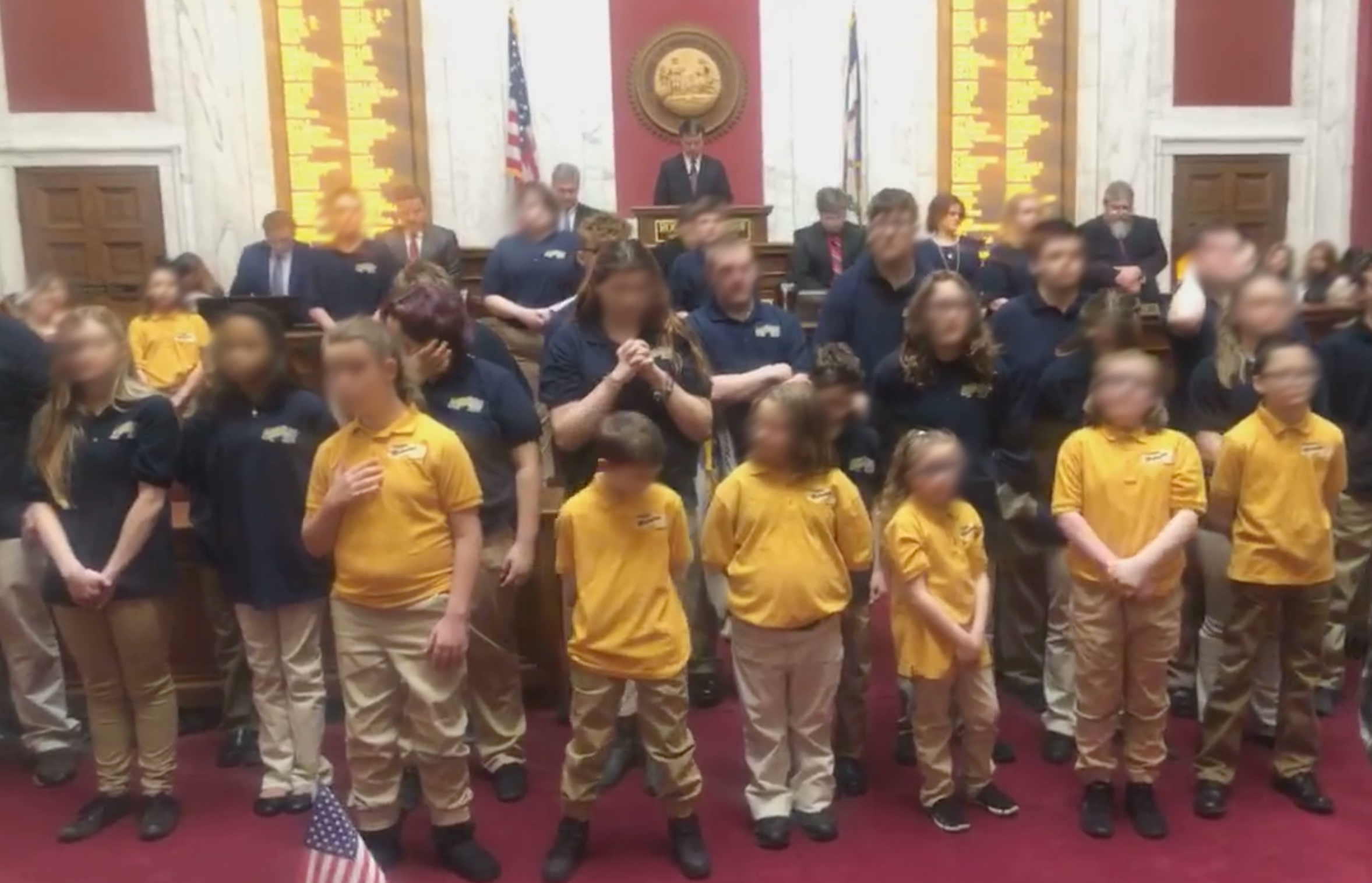
A recent Christian prayer at the West Virginia Statehouse was unconstitutional and an affront to the state’s non-Christians, asserts the Freedom From Religion Foundation.
A concerned local resident contacted FFRF to report that on Feb. 12, the House of Delegates hosted students from the West Virginia Schools for the Deaf and Blind, who performed three songs. While they were waiting at the dais before the start of their performance, there was an announcement that a prayer would be delivered. The prayer-giver then said:
I’ll be reading this morning from the Good News Bible, Psalms 31 verses 8 and 9. Let us pray. Oh God, our Father, I ask your blessings today on this House, the House of the people. I also ask a special blessing today on some pretty awesome young people gathered here with us. May all those gathered here in your presence today perform in a manner that will give You honor and glory. These things I ask in Your precious and holy name. Amen.
It is inappropriate and divisive to include a bible reading and a Christian prayer at the West Virginia state House, FFRF asserts in a formal letter of complaint.
“The Supreme Court has been particularly vigilant in protecting public school students’ right to a secular government,” FFRF Staff Attorney Ryan Jayne writes to Speaker Roger Hanshaw. “A public school taking sides on religion is unconstitutional. A state-level legislative body hosting public school students and coercing them into joining in a sectarian Christian religious ritual is much worse. While students may think the former is limited to their particular school or teacher, the latter sends a message that the entire state government is Christian.”
As the prayer-giver noted, the state House is the House of the people — all the people of West Virginia, not just Christians. Nearly 30 percent of Americans are non-Christians, including more than one-fourth of the population that is religiously unaffiliated. And a recent survey found that 21 percent of Americans born after 1999 are atheist or agnostic. Biblical readings and sectarian prayers send an exclusionary message to those who do not share the prayer-giver’s religion that the House of Delegates does not represent them.
We have a separation of state and church in this country because we are a diverse nation, FFRF underlines. Our nation’s original motto, E pluribus unum, speaks of strength through diversity — of many (people), one (nation). Governments that derive their power from the people cannot take sides on religion without alienating many of those citizens. Government neutrality on religion is not just constitutionally mandated, but a way to ensure that our democratic government functions.
The West Virginia House of Delegates should discontinue the practice of including prayers at its sessions altogether, FFRF advises. When young students are waiting in front of the House dais, they shouldn’t have religious messages or rituals foisted on them.
“The notion of having sectarian prayers delivered before official bodies is increasingly archaic,” says FFRF Co-President Annie Laurie Gaylor. “It is also disrespectful of the growing numbers of citizens — including in West Virginia — who aren’t religious.”
The Freedom From Religion Foundation is a national nonprofit organization with more than 30,000 members across the country, including in West Virginia. FFRF protects the constitutional separation between state and church and educates about nontheism.
This photo has been blurred to protect the children’s privacy.

